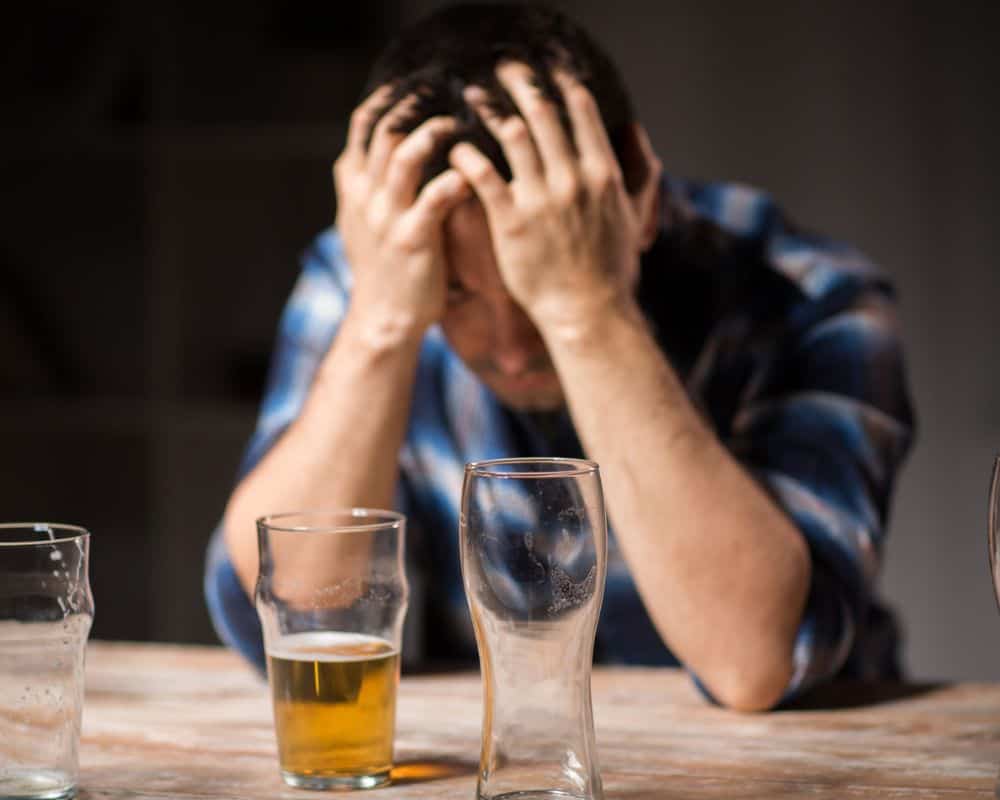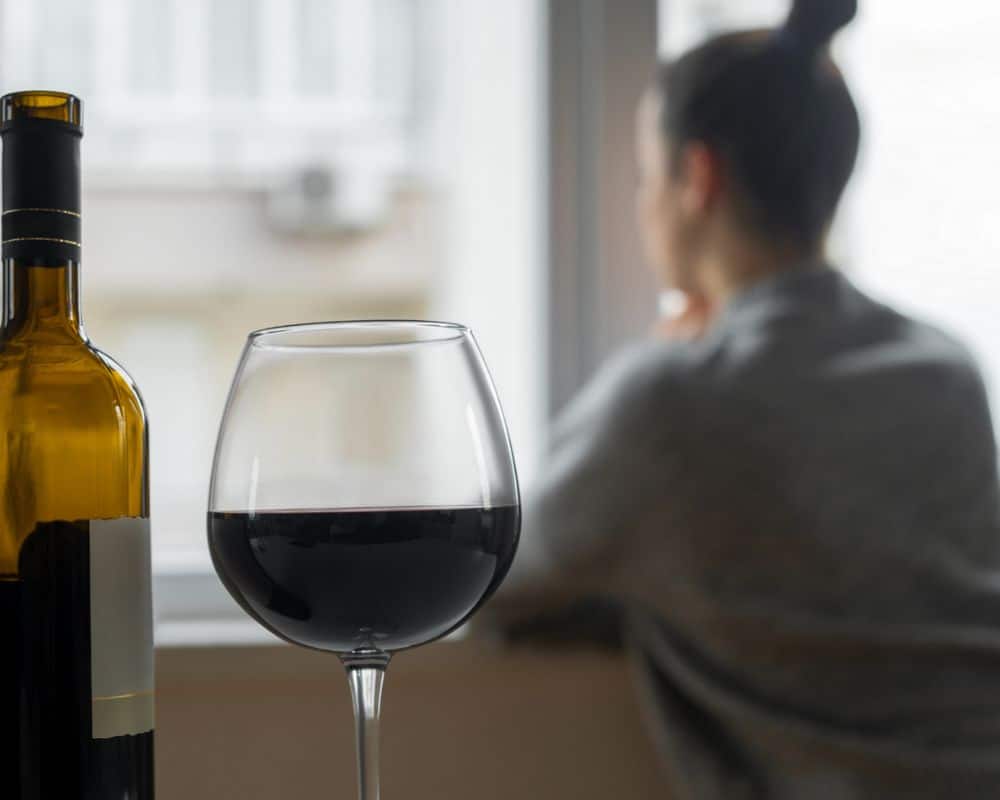Is it True that Mental Health Disorders Increase Addiction Risk?
It is true that mental health disorders can impair an individual’s ability to cope with stress, manage emotions, and resist harmful behaviors. For example: if you are having issues with a particular condition like depression or PTSD, you may feel inclined to numb your senses or manage symptoms – but this relief is only temporary, and the dangers of addiction far outlast the temporary burst of relief.
Or perhaps you feel the desire to act on a thought or feeling without thinking it entirely through? This may be an undercover mental disorder speaking. For example, bipolar disorder and ADHD are associated with impulsivity, and this lack of impulse control may lead to the desire to experiment with different substances..
Other issues like having more difficulties maintaining healthy relationships, or lack of affordable access to medical care may increase the risk of substance use as a coping mechanism.
The Extreme Consequences of Untreated Mental Disorders
When mental health issues go untreated, the consequences can extend far beyond emotional well-being, affecting every aspect of a person’s life:
• Worsened physical health: Substance use exacerbates the strain on the body caused by untreated mental illness, increasing the risk of chronic illnesses such as liver damage, heart disease, and weakened immune function.
• Strained relationships: Addiction and untreated mental health disorders can erode trust, communication, and emotional connection with family members and friends.
• Impaired daily functioning: Individuals may struggle to maintain employment, manage responsibilities, or engage in social activities, further deepening feelings of inadequacy and isolation.
• Increased risk of harm: Without intervention, the combination of addiction and mental health issues increases the likelihood of self-harm, accidental overdose, or engaging in risky behaviors.
Breaking the Cycle: The Importance of Professional Help
The interplay between mental health disorders and addiction creates a cycle that’s difficult to break without comprehensive treatment. Addressing both conditions simultaneously through an integrated approach is essential for sustained recovery. Professional help provides:
• A safe environment: Therapists and counselors offer emotional support and create a non-judgmental space where individuals can process their feelings.
• Customized care plans: Treatment programs tailored to the individual’s specific needs address both the mental health disorder and substance use.
• Behavioral therapies: Evidence-based approaches like cognitive-behavioral therapy (CBT) teach healthier ways to cope with stress and manage triggers.
• Access to medication: For some conditions, medications can stabilize symptoms, making it easier to focus on recovery.
A Path to Recovery
The connection between mental health disorders and addiction underscores the need for comprehensive, compassionate care. At Paramount Recovery Centers, we understand the challenges of co-occurring disorders and are dedicated to helping individuals reclaim their lives.

How Addiction Plays Into Mental Illness
To help us understand how addiction interacts with mental health, let’s look at some statistics given by the National Institute on Alcohol Abuse and Alcoholism:
- 37% of people struggling with alcohol addiction have at least one form of mental illness.
- 53% of people struggling with drug dependency, whether they’re prescription or illicit substances, have one or more mental health disorders.
Those are staggering numbers, but why do those statistics exist? Let’s look at alcohol abuse first.
Request a 100% Confidential Callback
If you or a loved one are struggling with substance abuse and mental health problems, contact our drug and alcohol rehab center in the Greater Boston area to talk confidentially with an addiction specialist. For immediate help, call (978) 878-3677 or fill out the form below, and we will get back to you as soon as possible.
"*" indicates required fields
Alcohol Abuse Affects Serotonin
Alcohol’s impact on the body extends beyond its immediate effects on heart rate, breathing, and cognitive functions—it also disrupts brain chemistry, particularly the regulation of serotonin. As a nervous system depressant, alcohol slows essential bodily functions, but its influence on serotonin can have lasting mental health consequences.
Serotonin, the body’s natural mood stabilizer, promotes calm and emotional stability by transmitting signals between nerve cells. In the short term, alcohol can temporarily boost serotonin levels, giving drinkers a brief sense of happiness or stress relief. This is why many turn to alcohol during challenging situations.
However, this fleeting relief comes at a cost. Heavy drinking causes the body to release large amounts of serotonin, depleting its reserves. Once alcohol’s effects wear off, serotonin levels drop significantly. Over time, chronic alcohol abuse can lead to persistently low serotonin, impairing the brain’s ability to regulate mood.
Symptoms of Alcohol Abuse
The result of these changes can be devastating. People who abuse alcohol may experience symptoms such as:
• Chronic depression
• Heightened anxiety
• Increased irritability
• Persistent feelings of sadness or hopelessness
• Suicidal thoughts or tendencies
These effects can trap individuals in a harmful cycle. The temporary mood boost from alcohol becomes a reason to drink more, but the long-term consequences deepen the very struggles they are trying to escape. The more someone drinks to feel better, the worse their mental health becomes, perpetuating a dangerous cycle of dependence and emotional instability.
Addressing alcohol abuse and its impact on serotonin is critical for improving both mental health and overall well-being. Treatment programs that integrate support for alcohol dependency with therapies targeting mood disorders can help individuals break this cycle and restore emotional balance. At Paramount Recovery Centers, we prioritize this comprehensive approach to healing, recognizing the interconnected nature of mental health and substance use disorders.
Drug Abuse Affects Brain Functions
Many drugs, like alcohol, are depressants. This includes benzodiazepines, prescription painkillers, and opioids like heroin. These have similar effects on the body’s use of serotonin, but the story doesn’t end there. Different types of drugs act on different parts of the brain. For instance, MDMA affects the production of dopamine, a neurotransmitter that makes you feel good after doing something. Stimulants like cocaine also make users feel rewarded in the short term by acting on other parts of the brain. After chronic use of any of these substances, the brain changes. In the long-term, these changes can turn into mental disorders such as:
- Schizophrenia
- Neurosis
- Bipolar disorder
- Delirium
- Depression
- Anxiety
- Sleep disorders
People with no previous record of mental illness may show signs of it after addiction. When this occurs, the two illnesses feed each other. Seeking help for both is vital.

What It All Means: Dual Diagnosis
Living with both a mental health disorder and addiction can feel overwhelming, as each condition often intensifies the challenges of the other. This intersection of mental health and substance use is more common than many realize, affecting millions of people across the United States. While it may seem daunting, understanding the relationship between these co-occurring disorders is the first step toward finding effective treatment and lasting recovery. By addressing both conditions together, individuals can begin to regain control of their lives and achieve improved overall well-being.
What Are Co-Occurring Disorders?
When a person experiences both a mental health disorder and a substance use disorder simultaneously, this is referred to as a dual diagnosis or co-occurring disorder. According to the National Institute on Drug Abuse, 17 million adults in the U.S. live with co-occurring disorders.
Why Co-Occurring Disorders Are Complex
• Substance use can mask or worsen the symptoms of mental health disorders.
• Mental health disorders can drive substance use as a form of self-medication.
• Effective treatment requires addressing both conditions simultaneously to prevent relapse and promote sustained recovery.
How Addiction Worsens Mental Health
Substance use doesn’t just coexist with other mental disorders—it often worsens them. Drugs and alcohol alter brain chemistry, impairing mood regulation, cognitive function, and behavior. Prolonged use can lead to long-term mental health problems, even in those with no prior history of mental illness.
• Alcohol Abuse: While alcohol initially boosts serotonin levels, chronic use depletes this vital neurotransmitter, increasing the risk of depression, anxiety, and suicidal thoughts.
• Drug Abuse: Substances such as opioids, stimulants, and recreational drugs can cause or worsen mental health disorders. Long-term use can lead to conditions like psychotic symptoms, sleep disorders, and mood instability.

Effective Treatment for Mental Health and Addiction
At Paramount Recovery Centers, we use an integrated approach to treat mental health and addiction, recognizing that both must be addressed together for successful outcomes.
Our evidence-based treatment programs include:
• Intensive Outpatient Programs (IOP): Clients receive personalized care through a combination of individual therapy, group therapy, and skill-building sessions. These programs are designed to address the unique challenges of co-occurring disorders.
• Behavioral Therapies: Techniques such as cognitive-behavioral therapy (CBT) and dialectical behavior therapy (DBT) help clients develop coping skills, manage triggers, and improve emotional regulation.
• Medication-Assisted Treatment (MAT): For those with opioid use disorder or severe mental illness, MAT can stabilize symptoms and support recovery.
• Support Groups: Programs like Alcoholics Anonymous (AA) and Narcotics Anonymous (NA) provide peer support and accountability, fostering connection and hope during the recovery process.
• Holistic Therapies: Yoga, mindfulness, and other therapeutic activities address the mind-body connection, improving both mental and physical health.

Treatment Options That Address Mental Health and Addiction
In 2019, the CDC reported that 19% of people saw a therapist for help in the past year. In 2018, about 21 million people needed substance abuse counseling. When those groups overlap, there is a solution: intensive outpatient programs (IOP). In IOP, people suffering from a mental disorder and addiction work individually with mental health and addiction specialists. They also attend group sessions with people suffering from dual diagnoses just like them. With this combination of treatments, they:
- Learn about the mechanics of addiction and mental health disorders
- Work on day-to-day coping skills
- Have a safety net of caring, informed individuals
- Find medications suitable for their issues if needed
- Find structure in sometimes hectic lives
Unlike residential rehab or inpatient treatment, people in an IOP still live at home and aren’t isolated from friends and family. They can still go to work but attend sessions multiple times a week for a few hours at a time. At Paramount Recovery Centers, we offer evening IOP in Massachusetts for people who work during the day or have other obligations. To give people access to treatment during the Covid-19 pandemic, we also began offering virtual IOP.
Since people need comfortable, safe spaces to open up and overcome addiction and mental health disorders, we also offer separate men’s IOP in Massachusetts and women’s IOP in Massachusetts. No matter the nature of your addiction, mental health disorder, or dual diagnosis, Paramount Recovery offers addiction treatment in Massachusetts tailored to each client. Together, we can help you or a loved one find joy and serenity in everyday life.
Why Seeking Help Matters
Living with mental health and addiction challenges can feel isolating, but recovery is possible with the right support. Left untreated, co-occurring disorders can lead to long-term consequences, including severe health issues, strained relationships, and reduced quality of life. Seeking professional help for substance abuse treatment early can prevent these outcomes and set the stage for lasting change.
Get Answers to Your Questions Now
Paramount Recovery Centers: Your Partner in Recovery
At Paramount Recovery Centers, we understand the complex relationship between mental health and addiction. Our integrated treatment programs are designed to address the root causes of co-occurring disorders, offering a path to healing and sustained recovery.
Whether you’re dealing with substance use, mental health issues, or both, you don’t have to face it alone. Contact Paramount Recovery Centers today to learn more about our comprehensive programs and start your journey toward a healthier, more fulfilling life. Together, we can help you or your loved one find joy, stability, and hope for the future.
The intricate interplay between mental health and addiction paints a complex picture where untreated psychological disorders can exacerbate substance abuse and vice versa, creating a cyclical and often coexisting challenge for many individuals.

Paramount Recovery Center’s Substance Use Disorder Treatment in MA for Drug and Alcohol Addiction
When you come to Paramount Recovery Centers, we aim to make you feel as welcome as possible. We recognize that many individuals dependent on drugs or alcohol struggle to deal with trauma, rage, guilt, or anxiety. We will do everything possible to make guests feel at ease and secure. We provide various treatment approaches for men and women seeking help for addiction. You can learn more about our effective treatments by messaging us through our online contact form.



